Psychology Myths Quotes & Sayings
Enjoy reading and share 9 famous quotes about Psychology Myths with everyone.
Top Psychology Myths Quotes
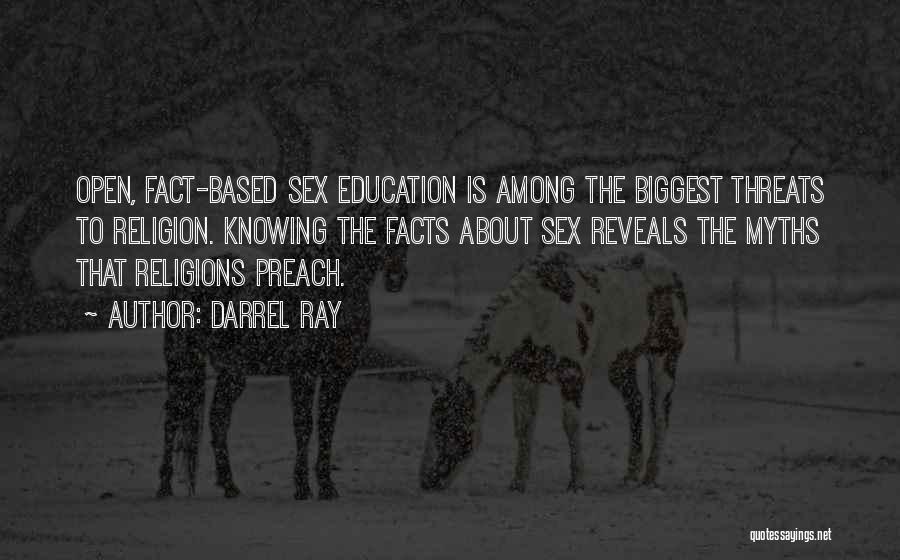
Open, fact-based sex education is among the biggest threats to religion. Knowing the facts about sex reveals the myths that religions preach. — Darrel Ray
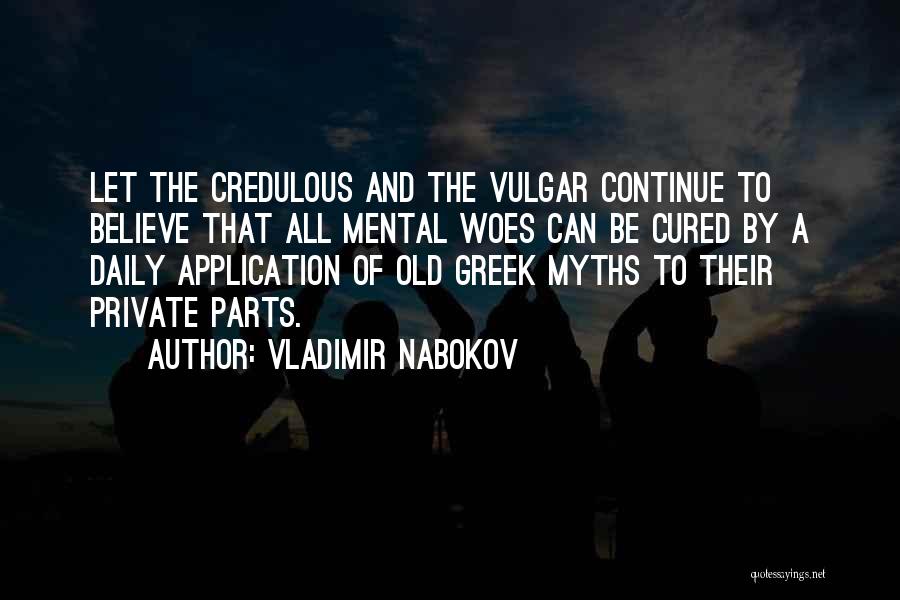
Let the credulous and the vulgar continue to believe that all mental woes can be cured by a daily application of old Greek myths to their private parts. — Vladimir Nabokov
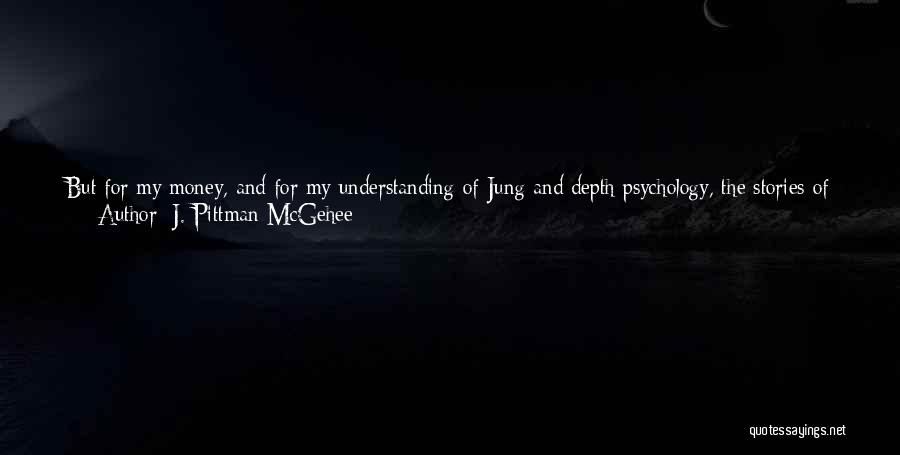
But for my money, and for my understanding of Jung and depth psychology, the stories of the Bible (and all sacred texts and oral traditions) emerged out of the collective unconscious. Paradoxically, this doesn't make them any less valuable. It makes them much more valuable to us, because they reveal to us the nature of being human, which is the purpose of religion.
If religion is about the business of helping us to become human, then these sacred stories are about how to be human. That is what religion is. To me, the idea that these myths welled up out of the collective unconscious is a liberating and empowering realization. I get it now! What a relief! — J. Pittman McGehee
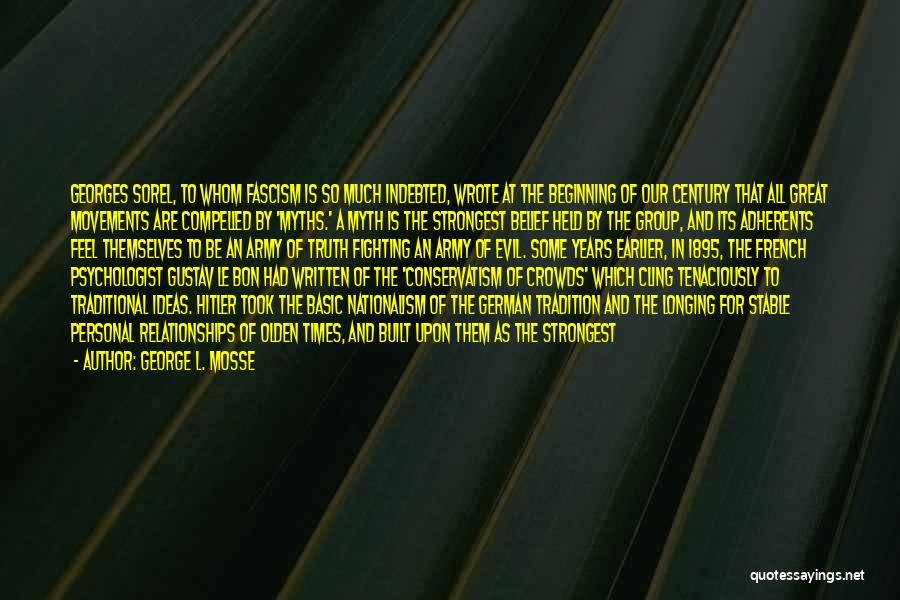
Georges Sorel, to whom fascism is so much indebted, wrote at the beginning of our century that all great movements are compelled by 'myths.' A myth is the strongest belief held by the group, and its adherents feel themselves to be an army of truth fighting an army of evil. Some years earlier, in 1895, the French psychologist Gustav Le Bon had written of the 'conservatism of crowds' which cling tenaciously to traditional ideas. Hitler took the basic nationalism of the German tradition and the longing for stable personal relationships of olden times, and built upon them as the strongest belief of the group. In the diffusion of the 'myth' Hitler fulfilled what Le Bon had forecast: that 'magical powers' were needed to control the crowd. The Fuhrer himself wrote of the 'magic influence' of mass suggestion and the liturgical aspects of his movement, and its success as a mass religion bore out the truth of this view. — George L. Mosse
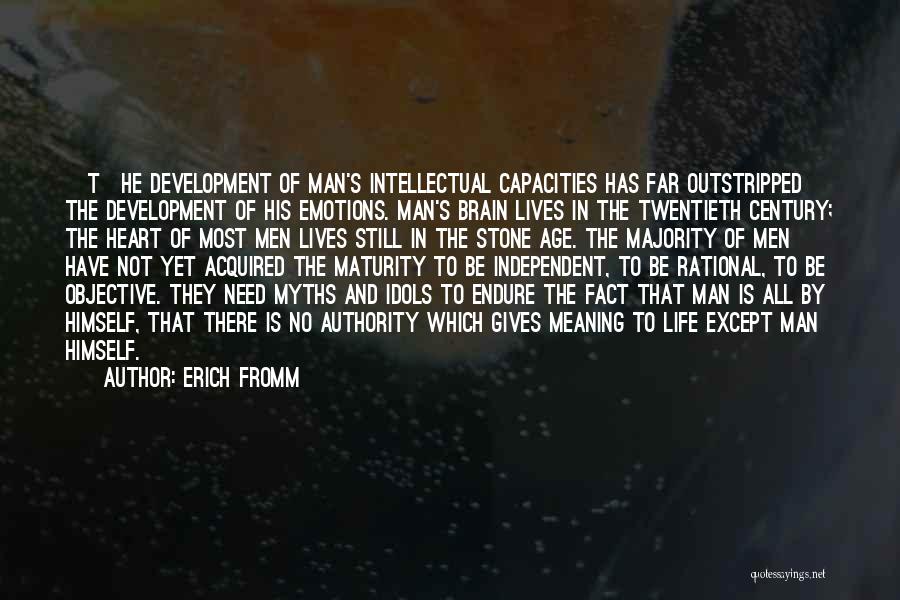
[T]he development of man's intellectual capacities has far outstripped the development of his emotions. Man's brain lives in the twentieth century; the heart of most men lives still in the Stone Age. The majority of men have not yet acquired the maturity to be independent, to be rational, to be objective. They need myths and idols to endure the fact that man is all by himself, that there is no authority which gives meaning to life except man himself. — Erich Fromm

The first reason for psychology's failure to understand what people are and how they act, is that clinicians and psychiatrists, who are generally the theoreticians on these matters, have essentially made up myths without any evidence to support them; the second reason for psychology's failure is that personality theory has looked for inner traits when it should have been looking for social context. — Naomi Weisstein

For the most part, "naturals" are myths. People who are especially good at something may have some innate inclination, or some particular talent, but they have also spent about ten thousand hours practicing or doing that thing. — Meg Jay
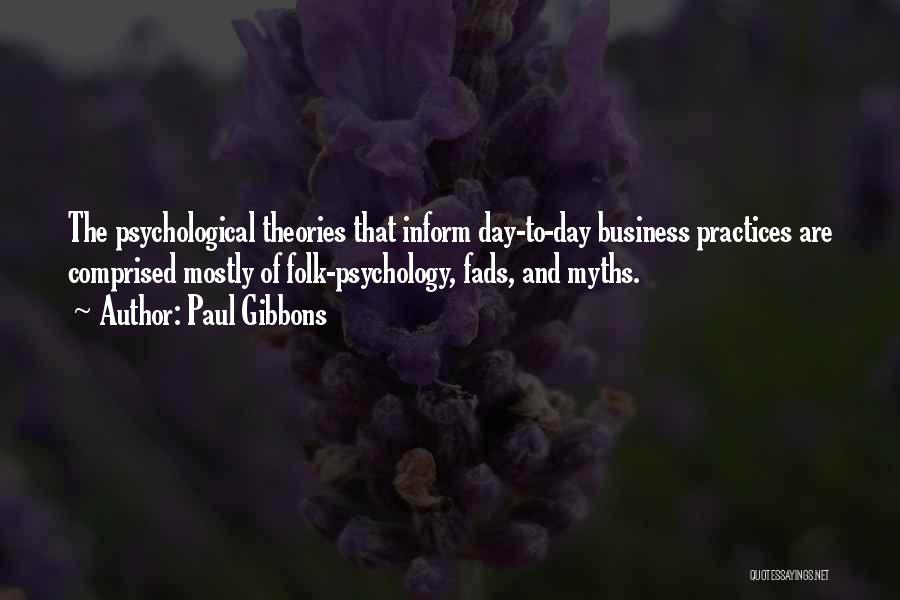
The psychological theories that inform day-to-day business practices are comprised mostly of folk-psychology, fads, and myths. — Paul Gibbons

Muslims pursued knowledge to the edges of the earth. Al-Biruni, the central Asian polymath, is arguably the world's first anthropologist. The great linguists of Iraq and Persia laid the foundations a thousand years ago for subjects only now coming to the forefront in language studies. Ibn Khaldun, who is considered the first true scientific historian, argued hundreds of years ago that history should be based upon facts and not myths or superstitions. The great psychologists of Islam known as the Sufis wrote treatise after treatise that rival the most advanced texts today on human psychology. The great ethicists and exegetes of Islam's past left tomes that fill countless shelves in the great libraries of the world, and many more of their texts remain in manuscript form.
In the foreword of "Being Muslim. A Practical Guide" by Dr. Asad Tarsin. — Hamza Yusuf





